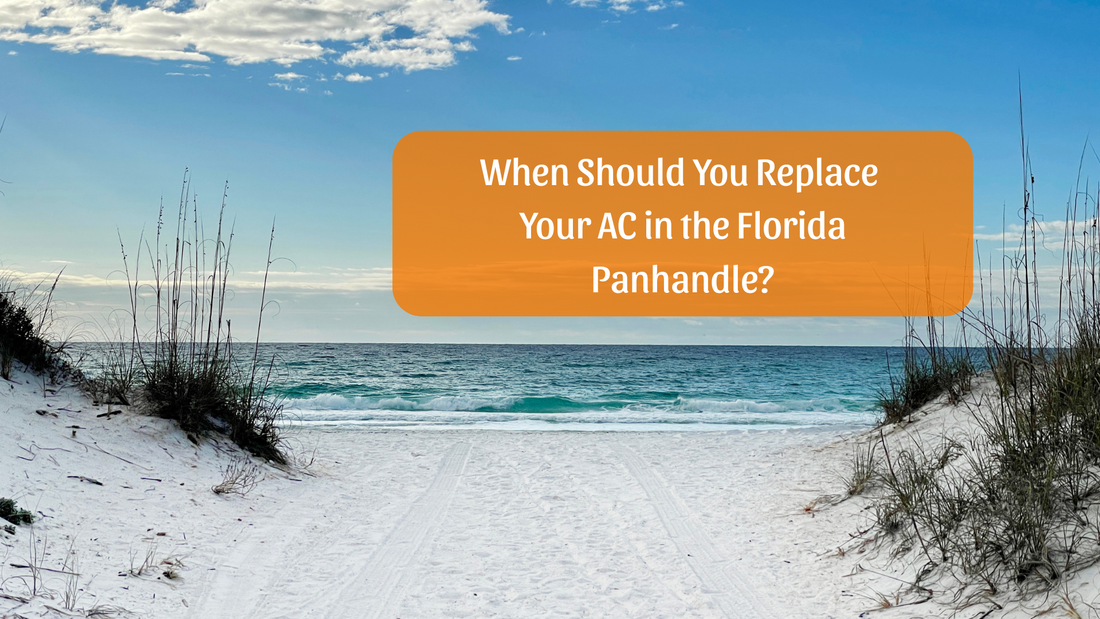
When Should You Replace Your AC in the Florida Panhandle?
Share
Living in the Florida Panhandle means your air conditioner works overtime for most of the year. Between the high humidity, long summers, and salty coastal air, your AC system is under constant stress- which means it won’t last forever. But how do you know when it’s time to stop repairing and start replacing?
Here are the key signs it’s time to replace your air conditioner, along with some Florida-specific advice to help you make the best decision for your home and comfort.
1. Your AC Is 10–15+ Years Old
The average lifespan of an AC system in the Florida Panhandle is typically 10–15 years, depending on how well it’s been maintained. The salty coastal air and high humidity can cause components to wear out faster than in drier climates. If your unit is nearing or past this age range, it’s smart to start planning for a replacement, even if it’s still running.
2. Repairs Are Becoming Frequent (and Expensive)
If you’ve called your HVAC technician more than once this year for a major repair, your AC might be on its last leg. One helpful rule of thumb:
If the repair cost is more than 50% of the cost of a new unit, it’s probably time to replace.
Investing in a new, energy-efficient system can save you money in the long run, especially with today’s rising energy costs.
3. Your Energy Bills Keep Climbing
Is your power bill creeping higher each month, even when your usage hasn’t changed? Older systems have to work harder and longer to keep up with Florida’s heat and humidity, especially during peak summer months. A new high-efficiency unit with a modern SEER rating can drastically reduce your energy bills and cool your home more consistently.
4. Your Home Feels Humid or Uncomfortable
AC systems in our region don’t just cool, they also help control humidity. If your home feels muggy or your AC is running nonstop without reaching your set temperature, the system may be struggling. Florida’s climate demands a properly sized and functioning unit to keep your home comfortable and safe.
5. You're Still Using R-22 Freon (Outdated Refrigerant)
If your AC uses R-22 (Freon), it’s time to replace it. This refrigerant has been phased out by the EPA due to its environmental impact. It’s now expensive to source and illegal to manufacture, meaning any future repairs involving refrigerant will be costly and temporary fixes at best.
Benefits of Replacing Your AC
Upgrading your system comes with more than just cooler air:
- Lower energy bills
- Quieter operation
- Improved humidity control
- More consistent temperatures
- Better indoor air quality
- Peace of mind during hurricane season
Need Help Deciding? Let’s Talk.
We’ve helped homeowners across the Florida Panhandle stay cool and comfortable for years. If you're unsure whether to repair or replace, we’ll give you an honest assessment- no pressure, just real answers.
Call us today or schedule a free estimate to find out if it’s time for a new AC.



